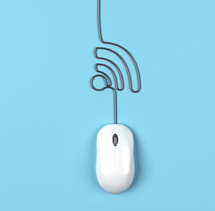
A recent survey by the Wi-Fi Alliance and Wakefield Research discovered that 90 percent of college students consider Wi-Fi access to be essential to their educational success.
As reported in an Online Colleges illustrated infograph, 79 percent of students said that without Wi-Fi service, college would be much more difficult. About three in four students reported that Wi-Fi service helped improve their educational performance and earn them better grades, while 44 percent said they used Wi-Fi to increase their productivity, often using Wi-Fi service to get a head start on an assignment while class is still in session.
Wi-Fi availability is a major determining factor of where students travel to complete their assignments. Fifty-two percent of students said they often travel to coffee shops well-known for reliable connections, while 42 percent reported frequenting bookstores. Thirty-three percent of students said they often study in restaurants that boast solid Wi-Fi connections.
According to ABI Research, an increasing number of colleges and universities are investing in Wi-Fi access points and controllers. It is projected that colleges will invest upwards of $837 million worldwide in Wi-Fi technologies this year—a 611-percent increase since 2007.
The research shows that many institutions are transitioning to faster “n” Wi-Fi networks from the formerly popular third-generation “g” networks. Though “n” networks are typically more costly upfront, they could be more cost-effective in the long run, when future upgrades are considered.
A group of leading research universities recently teamed up with their local communities to create the University Community Next Generation Innovation Project (Gig.U). Gig.U is designed to encourage Americans to develop innovative high-speed network services and applications, and strengthen the United States’ global ed-tech impact.
Participating universities benefit from their involvement in Gig.U. Michigan State University (MSU), for example, now has ultra-high-speed internet provided by Spartan-Net, in partnership with DTN Management Co. MSU’s Wi-Fi service has recently expanded to areas surrounding campus where demand is highest, including Lansing and East Lansing.
Another Gig.U partner, Stanford University, has benefited by gaining free access to the ultra-high-speed Google Fiber network for its students and faculty members. Stanford has also increased its Wi-Fi service to its residential subdivision of campus, which includes roughly 850 homes.
- Adaptive learning helps personalize instruction for students - March 29, 2013
- New software aims to improve course evaluation process - March 27, 2013
- Disability Resource Center empowers students to unlock their full potential - March 25, 2013

